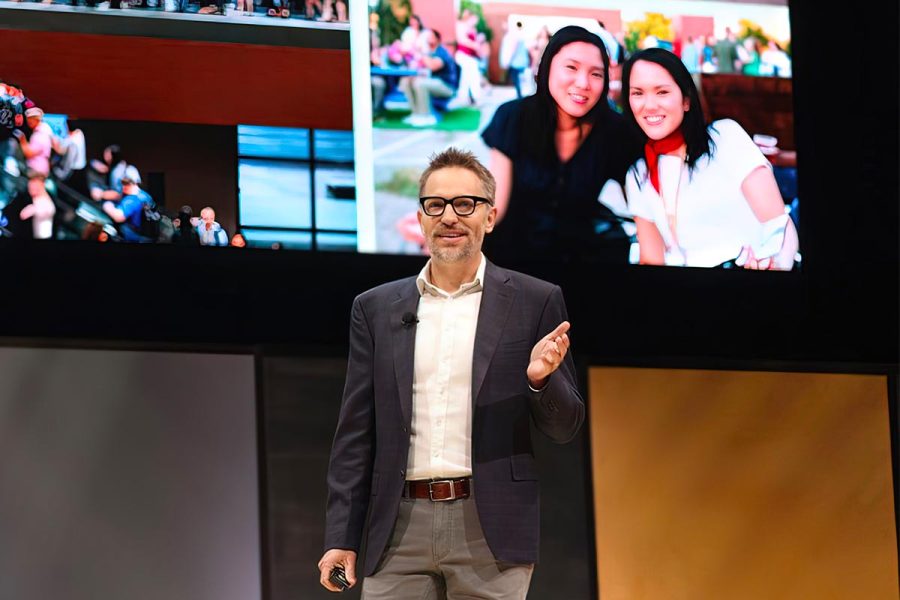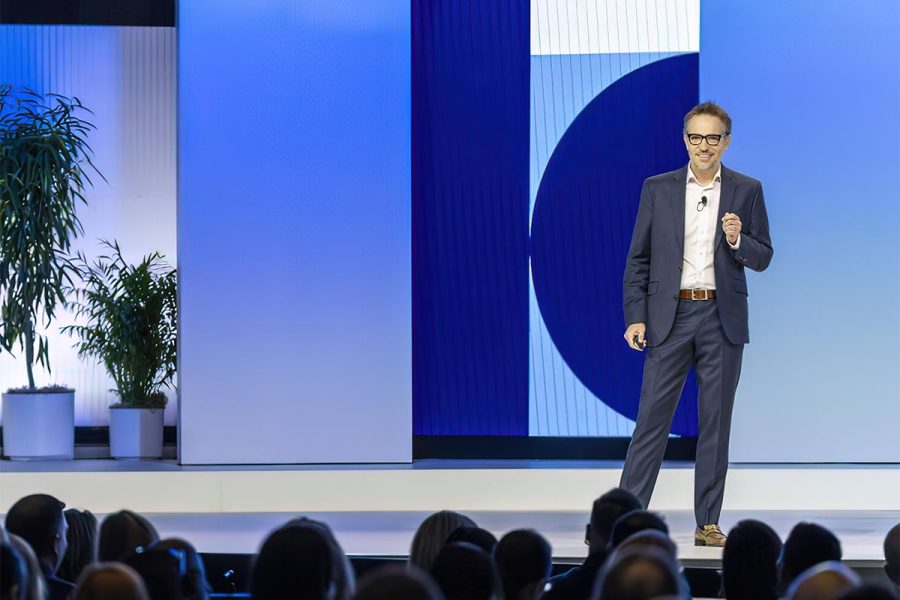Amidst global upheavals, LinkedIn’s CEO redefines leadership, embracing challenges as avenues for innovation and growth
In the tumultuous waters of 2020, Ryan Roslansky assumed the helm as LinkedIn’s CEO, navigating the professional networking giant through uncharted territories. His tenure began amid the cacophony of a global health crisis, a seismic shift towards remote work, and the ensnaring grip of a supply chain crisis, painting a daunting vista for any leader, let alone one newly appointed.
Roslansky, whose philosophical compass was calibrated by a Shakespearean quote cherished by his father, faced these adversities with a resilience that seemed to echo the bard’s wisdom on character and adversity. His approach was not to merely weather the storm but to chart a course through it, transforming challenges into opportunities for growth and innovation.

Under his stewardship, LinkedIn, a platform that has long served as a barometer for the professional pulse of the world, rapidly evolved. Roslansky’s strategy hinged on what he termed a “skills-first mentality,” a pivot from traditional hiring paradigms focused on degrees and pedigrees to a more dynamic understanding of talent, underscored by capabilities and adaptability.
This shift was emblematic of the broader transformation Roslansky spearheaded within the organization. LinkedIn, under his guidance, introduced new features aimed at supporting its members through the vicissitudes of job markets turned volatile by the pandemic. The company embraced a hybrid work model, recognizing the changing contours of work-life balance and the diverse needs of its workforce.
Roslansky’s leadership philosophy, seemingly influenced by conversations with luminaries like Microsoft’s Satya Nadella and former Burberry CEO Angela Ahrendts, underscores the essence of adaptive leadership. It’s a testament to his belief in the potential for growth in adversity—a belief that has not only steered LinkedIn through uncertain times but has also redefined the platform’s role in a changing global workforce.

The “tours of duty” concept, initially introduced by LinkedIn co-founder Reid Hoffman, found renewed emphasis under Roslansky. It epitomized the company’s commitment to internal mobility and skill development, fostering a culture where employees are encouraged to explore diverse career paths within the organization.
Roslansky’s tenure is marked by a recognition that the most valuable asset any organization has is its people. By focusing on nurturing the skills and careers of LinkedIn’s workforce, he has not only enhanced the company’s resilience but also its capacity for innovation.
In a landscape where disruption is the only constant, Roslansky’s journey at the helm of LinkedIn serves as a compelling narrative of leadership that thrives on change. It’s a narrative that underscores the importance of an adaptive mindset, one that views turbulent waters not as a peril but as an opportunity to redefine the very essence of how business is conducted in a digitally interconnected world.